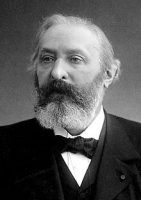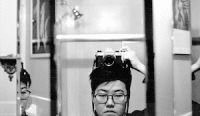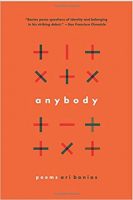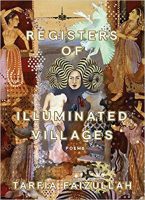March 18, 2018
Edited by David Sanders
Specimen Days
1585—Gerbrant A Bredero, Holland, poet/playwright (Klucht van de Koe), is born.
1757—Bengt Lidner, Swedish poet (Medea, Yttersa Domen), is born.
1839—René F Armand Sully-Prudhomme, French poet, 1st Nobel winner (1901), is born.
1883—Ethel Anderson, Australian poet (d. 1958), is born.
1892—Caesar Vallejo, Peruvian/French poet (Los Heraldos Negros), is born.
1945—Pierre Drieu la Rochelle, French writer/poet, commits suicide at 52.
1945—Börries von Münchhausen, German poet (b. 1874), dies.

Here Below
Here below, all the lilacs die,
All the bird songs are brief,
I dream of summers that remain
Forever…
Here below, lips barely brush,
Leaving nothing of their velvet,
I dream of kisses that remain
Forever…
Here below, all the men weep
For their friendships or their loves;
I dream of couples who remain
Forever…
—René François Armand Sully-Prudhomme translated by Robin Kallsen
“Here below, all the lilacs die, / All the bird songs are brief, / I dream of summers that remain / Forever” – René Francois Armand Sully-Prudhomme
World Poetry
Jamaica's Poet Laureate Lorna Goodison Wins US$165,000 Prize
Jamaica's Poet Laureate Lorna Goodison was among a distinguished group of writers announced by Yale University yesterday as the 2018 recipients of the Windham-Campbell Prizes. The eight recipients, honoured for their literary achievement or promise, will receive a US$165,000 individual prize to support their writing. “This wonderful award will allow me precious time and space to continue my writing,” said Goodison. “I am honoured, and I turn thanks on behalf of me and my people.”
Lorna Goodison was among the writers announced by Yale University yesterday as the 2018 recipients of the Windham-Campbell Prizes.
Recent Reviews
Brenda Hillman's 'Extra Hidden Life, Among the Days' Ponders How Poetry Can Help Us Chronicle, Engage, Grieve
by Craig Morgan Teicher

How can poetry help us cope with the Trump era? Or, as Brenda Hillman asks, "What do people need from poetry during these changes?" "Extra Hidden Life, Among the Days," Hillman's 10th collection and a work largely concerned with grief, is one uneasy answer. These poems propose that what art can give us, amid public turmoil that, for many, feels poignantly personal, is a communal forum to air our innermost feelings, a force to steady us against torrents of tweets and headlines, and an intimate megaphone to amplify our anger and pain. "We don't read recipes at the graves/ We don't read tracts & theories at the graves," writes Hillman — we read poetry.
Review: Appropriate Measures
by Kit Fan
A book of collected poems, posthumous or otherwise, radiates a poet’s work against a total horizon, occupying a larger symbolic space than the individual collections. If the ‘collected’ suggests a solar, monumental completeness, a ‘selected’ seems a lunar counterpart – less definable, more like images reflected from a larger body, and by its selective nature, counter-definitive. Gunn edited seven selections of other poets, most notably Fulke Greville, Ben Johnson, Ezra Pound, and Yvor Winters – all of whom influenced him deeply. He also compiled three Faber selecteds from his own work; the most iconic, in 1962, co-starred Ted Hughes – a book touched by the hands of many A-level students. All three appeared before his Collected Poems in 1994, his last book Boss Cupid in 2000, and his sudden death in 2004. Posthumous selected poems, often done by a fellow poet or admirer, are an important and difficult genre.
Undoing a Long Erasure
by Christopher J. Adamson
“‘Selected’ is the only adjective that accurately describes any book of Moore’s work thus far produced, or any that can be produced,” writes Heather Cass White in the introduction to the latest Marianne Moore volume nevertheless titled with the adjective collected. While one might agree with White that this latest edition could accurately be called Another Selected Moore, this judgment would be a disservice to the thoughtful and necessary work of editorial preservation that is White’s accomplishment. She restores many of Moore’s achievements from the poet’s own acts of erasure.
On Frank Ormsby’s ‘The Darkness of Snow’
by Tess Taylor
“Where I grew up the fields had names,” begins one of the sections of Frank Ormsby’s lucid, funny, and also bittersweet book of poems. Ormsby, a contemporary of Paul Muldoon and Michael Longley who spent his career teaching high school in downtown Belfast, now offers up a late-life collage of what he calls “practical affections.”
How can poetry help us cope with the Trump era? Or, as Brenda Hillman asks, “What do people need from poetry during these changes?”
Broadsides
Stay, Illusion: a Tribute to Lucie Brock-Broido
by Carol Muske-Dukes

Our poetry community has sustained some major blows of late — recent deaths of canonical figures have elicited shocked and painfully paid respects. "The great oaks are falling," observed one poet, and indeed the metaphoric forest reverberates still with its emptying of towering heights — Mark Strand, Philip Levine, Carolyn Kizer, Adrienne Rich, and many more, a whole generation and beyond — brought down and lost forever. Yet the death Tuesday of my friend Lucie Brock-Broido represents a sudden swift implausible descent in another part of the forest.
Teaching William Zinsser to Write Poetry
by Diana Goetsch
In the spring of 2012, I got a call from William Zinsser, asking if I thought I could teach him to write poetry. “Yes,” I replied, confident not so much in myself as in him: if Zinsser, the beloved nonfiction guru, the author of “On Writing Well” and eighteen other books, couldn’t be taught to write poetry, nobody could. There was just one catch: Bill was blind.
One Long Poem
by Heather Treseler
“The enormous power of reticence,” Octavio Paz wrote in 1977, “is the great lesson of the poetry of Elizabeth Bishop.” Many critics have echoed his praise since her death in 1979. “Bishop wrote delicately and elliptically,” Kathleen Spivack sums up in her 2012 memoir With Robert Lowell and His Circle. “What is most important is what is not said.” Bishop’s reputed reserve has taken on new significance in light of personal correspondence discovered in 2009. When Bishop’s lover Alice Methfessel passed away, her heir found a locked box containing some of Bishop’s photographs and personal documents, including three remarkable letters she wrote to her psychiatrist, Dr. Ruth Foster, in 1947. These letters were written at a crucial moment of Bishop’s career, and their discovery calls for a reassessment of her lyric development and legacy.
Beloved poet Lucie Brock-Broido has passed away.
Drafts & Fragments
“The Pound Project,” 16 Poems after Lines by Ezra Pound
by Jerome Rothenberg

The abomination of the neo-fascist “Casa Pound” party in contemporary Italian politics brings me back to a 16-poem series I wrote several years ago, with Ezra Pound – a strong poetry influence for many of us (myself included) & in politics a fool or worse – as the central focus. Each poem starts with two lines from Pound, to which I add ten or eleven new lines in conclusion, as explained below. The original commission for the work was from Francesco Conz along with Pound’s daughter Mary de Rachewiltz, whose recent denunciation of the Casa Pound people should also be noted.
Several years ago Jerome Rothenberg wrote a 16-poem series in response to lines by Ezra Pound.
Poetry In the News
Yanyi is Named the 2018 Yale Younger Poet

“The Year of Blue Water,” a manuscript by the Brooklyn-based poet Yanyi, has been chosen as the winner of the 2018 Yale Series of Younger Poets competition. “As its title implies, ‘The Year of Blue Water’ reads as a record of time, a kind of daybook of observations in sentences so crystalline, spare, direct, and yet offhand, that it can be easy to miss, at first, the book’s complexity,” says Carl Phillips, the critically acclaimed poet and the judge for the competition.
Poet Lucie Brock-Broido Dead at 61
Lucie Brock-Broido, a prize-winning poet and educator, has died at age 61.
Publisher Alfred A. Knopf announced Wednesday that Brock-Broido died Tuesday at her home in Cambridge, Massachusetts. The cause of death was not immediately provided.
“The Year of Blue Water,” a manuscript by Yanyi, has been chosen as the winner of the 2018 Yale Series of Younger Poets competition.
New Books
Regular Haunts: New and Previous Poems by Gerald Costanzo
[Paperback] University of Nebraska Press, 156 pp., $19.95

Gerald Costanzo, long known as one of the best contemporary poets of satire, focuses specifically on American themes that, though presented as parables, fables, jokes, and put-ons, remain darkly serious in tone. His subject is the mythic landscape of America itself: the transitory, popular, consumer culture of late twentieth- and early twenty-first-century life. Costanzo evokes a sense of having arrived on the scene too late, of having missed the heyday of American innocence and possibility, and now—in the present—is forced to live with diminished experience. He mourns a culture where genuine emotion cannot be found but where its semblance can be endlessly marketed. Regular Haunts is a retrospective collection of Costanzo’s work that also includes nearly thirty new poems.
The Middle Ages by Jim Daniels
[Paperback] Red Mountain Press, 92 pp., $18.95
"The Middle Ages is a meditation on America's power and vulnerability in Pittsburgh, in Doha, in Michigan's U.P. Jim Daniels is a generous, inventive poet with great emotional range and insight. He is at home writing poems about home—the domestic space, child-rearing, marriage, aging, ambition—with honesty, intimacy, and grace. He is also a poet of the world—a witness to war, poverty, political absurdities, and impending obliteration, asking 'What happened to shame, / good old American shame?' Read this book and find out. Jim Daniels is humorous, provocative, and smart—an American treasure."—Denise Duhamel
Anybody: Poems by Ari Banias
[Hardcover] W. W. Norton & Company, 112 pp., $25.95

In Anybody, Ari Banias takes up questions of recognition and belonging: how boundaries are drawn and managed, the ways he and she, us and them, here and elsewhere are kept separate, and at what cost identities and selves are forged. Moving through iconic and imagined landscapes, Anybody confronts the strangeness of being alive and of being a restlessly gendered, queer, emotive body. Wherever the poet turns―the cruising spaces of Fire Island, a city lake, a Greek island, a bodega-turned-coffee-shop―he finds the charge of boundedness and signification, the implications of what it means to be a this instead of a that. Witty, tender, and original, these poems pierce the constructs that define our lives.
Cape Verdean Blues by Shauna Barbosa
[Paperback] University of Pittsburgh Press, 96 pp., $15.95
The speaker in Cape Verdean Blues is an oracle walking down the street. Shauna Barbosa interrogates encounters and the weight of their space. Grounded in bodily experience and the phenomenology of femininity, this collection provides a sense of Cape Verdean identity. It uniquely captures the essence of “Sodade,” as it refers to the Cape Verdean American experience, and also the nostalgia and self-reflection one navigates through relationships lived, lost, and imagined. And its layers of unusual imagery and sound hold the reader in their grip.
Registers of Illuminated Villages: Poems by Tarfia Faizullah
[Paperback] Graywolf Press, 96 pp., $16.00

Registers of Illuminated Villages is Tarfia Faizullah’s highly anticipated second collection, following her award-winning debut, Seam. Faizullah’s new work extends and transforms her powerful accounts of violence, war, and loss into poems of many forms and voices―elegies, outcries, self-portraits, and larger-scale confrontations with discrimination, family, and memory. One poem steps down the page like a Slinky; another poem responds to makeup homework completed in the summer of a childhood accident; other poems punctuate the collection with dark meditations on dissociation, discipline, defiance, and destiny; and the near-title poem, “Register of Eliminated Villages,” suggests illuminated texts, one a Qur’an in which the speaker’s name might be found, and the other a register of 397 villages destroyed in northern Iraq. Faizullah is an essential new poet whose work only grows more urgent, beautiful, and―even in its unsparing brutality―full of love.
Gerald Costanzo, long known as one of the best contemporary poets of satire, focuses specifically on American themes.
Correspondences
Diving into the Linguistic Unconscious: An Interview with Wayne Koestenbaum
by Shoshana Olidort
Eclectic may be the best word to capture Wayne Koestenbaum, an acclaimed poet, distinguished professor, and cultural critic who has written on subjects ranging from Jackie O to Harpo Marx, and from Andy Warhol to humiliation. Koestenbaum’s current project is a trance trilogy, the second volume of which, Camp Marmalade, will be out this month. Koestenbaum and I met virtually, via Zoom, in late January, where, from our respective living spaces on either coast, we discussed the linguistic unconscious, Susan Sontag, and the poetic descent into the underworld
The Man in the Clearing
Iain Sinclair meets Gary Snyder
by Ian Sinclair
Coming through the woods, down a soft winding track, two minutes shy of the time we have been instructed to arrive, 10 a.m. on a bright Sunday morning, we see the man already there in the clearing, his right hand on the dog’s collar. Two minutes later, you feel, and he’d be gone. But this is the right person, undoubtedly, the one we have come to see. In a solid, heavy, hired car, a Chevrolet Impala, we have driven down the coast, on 101, from Seattle to Eureka, where a mudslide after weeks of rain diverted us over the mountains to Red Bluff, and on to goldmining country, Nevada City and the foothills of the Sierra Nevada. The man in the clearing, thin silver hair lit from behind, long blue work shirt over pink, is lean, of modest height, and steady as a post. The dog is more enthusiastic, a superior hillbilly poodle. It bounds forward to lick the passenger window, avid for society. As the man is not: he can take it when it comes, assess a situation, shape unshapely events to a predetermined programme and deliver what’s required, before returning to his proper business, a measured life in a portion of territory he has made his own.
Eclectic may be the best word to capture Wayne Koestenbaum, an acclaimed poet, distinguished professor, and cultural critic.
Envoi: Editor’s Notes
Ahh, Vexed Ezra
What's the word the academics use? Vexed, I think. That works. Ezra's legacy is vexed. But even if one could remove the politics or the character flaws— that is, the man, from the poetry, the poetry itself would be vexed. Which is to say, readers wouldn't be able to separate the wheat from the chaff in a way that all would agree on. But here's a little something he left us, which I hope would be found to be universal in its appeal.
"And the days are not full enough"
And the days are not full enough
And the nights are not full enough
And life slips by like a field mouse
Not shaking the grass.
—Ezra Pound
“And the days are not full enough / And the nights are not full enough / And life slips by like a field mouse” – Ezra Pound